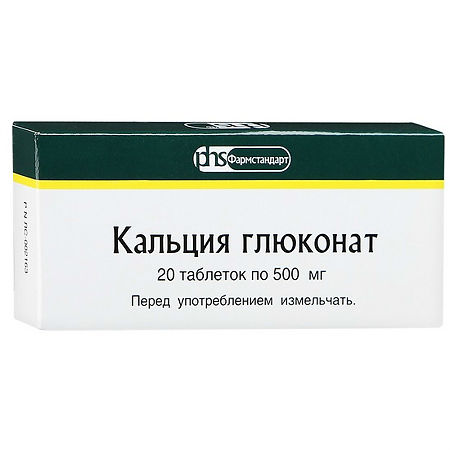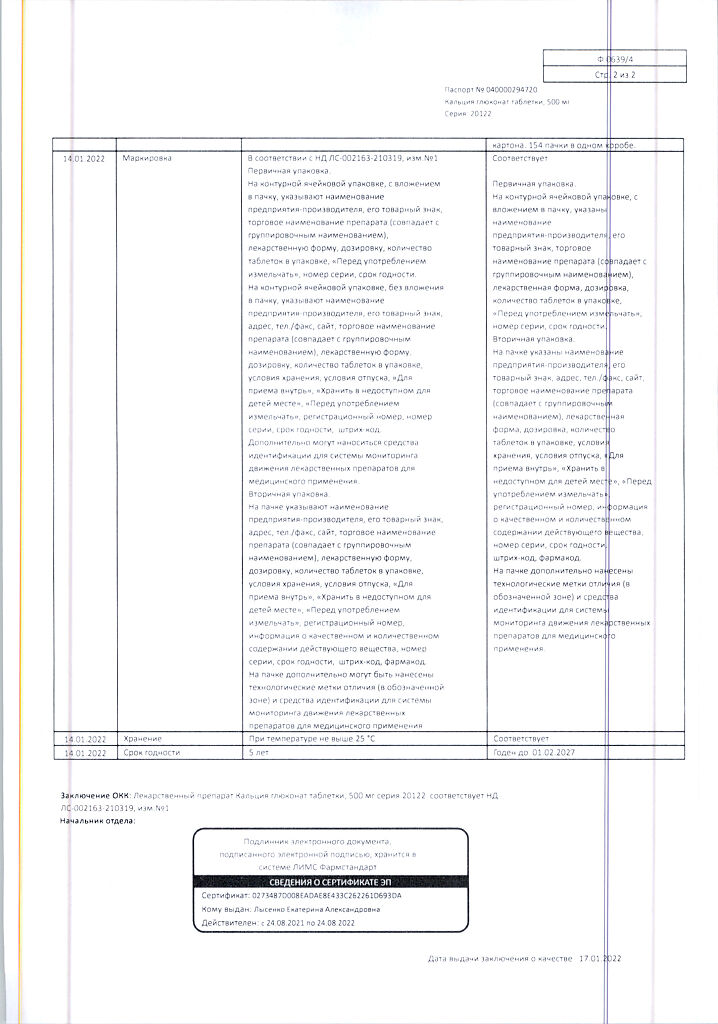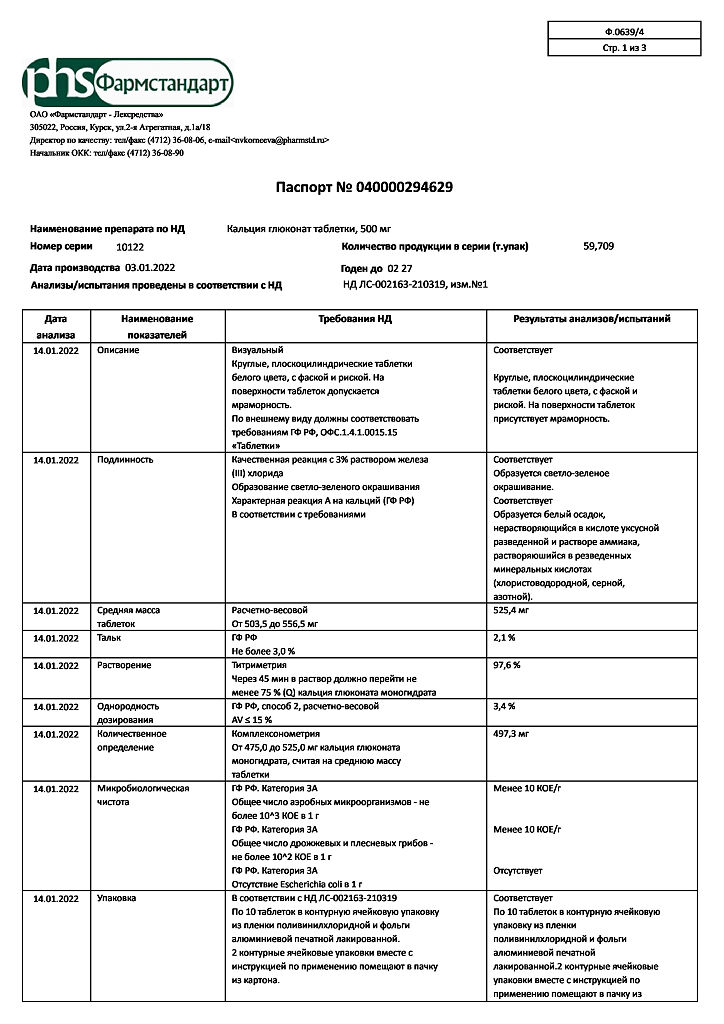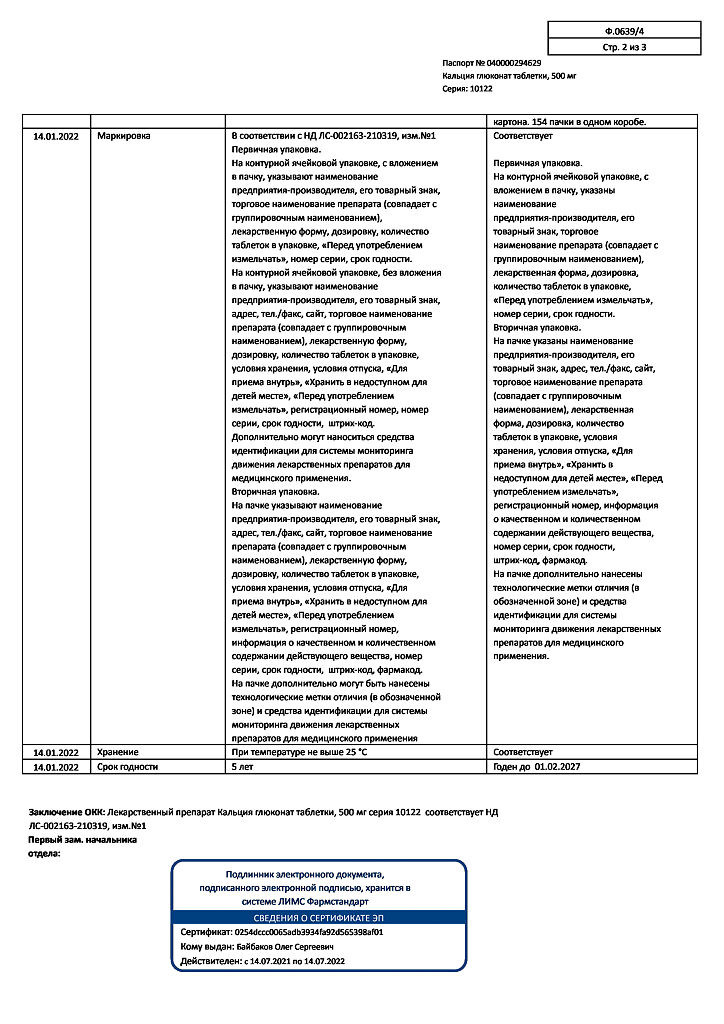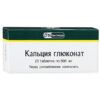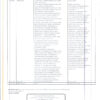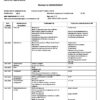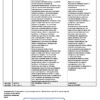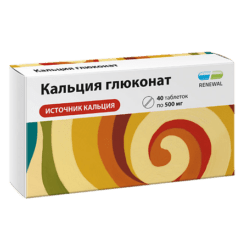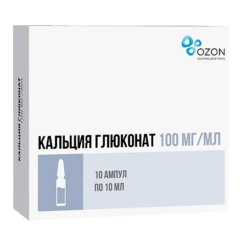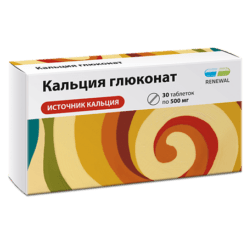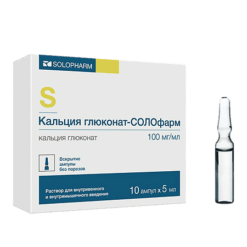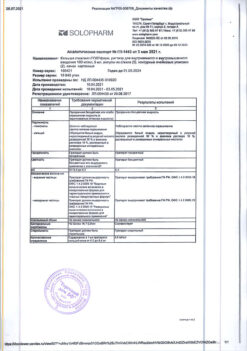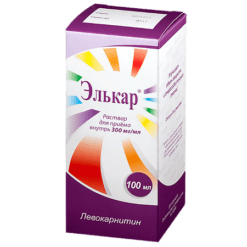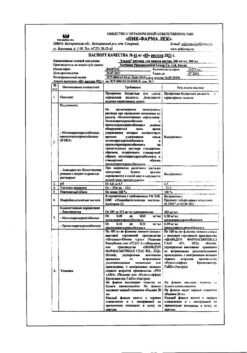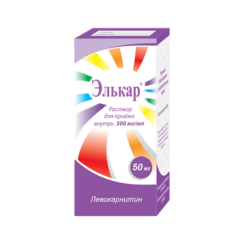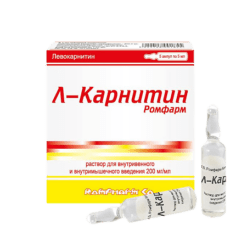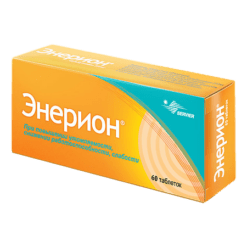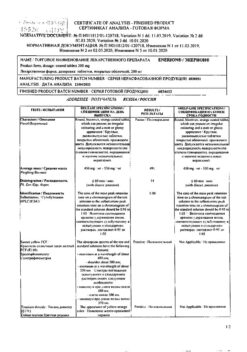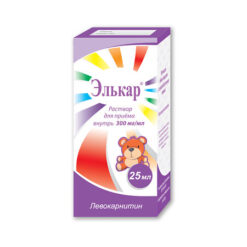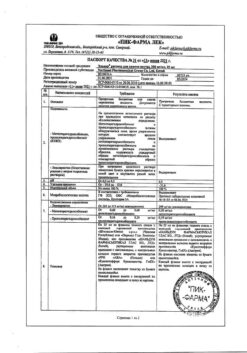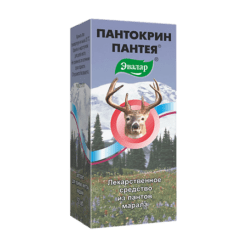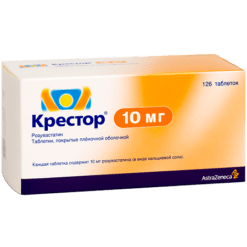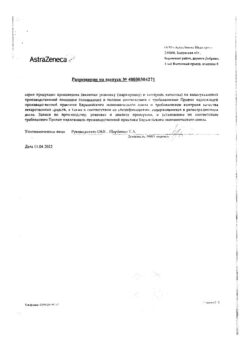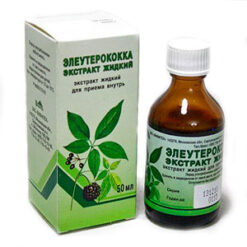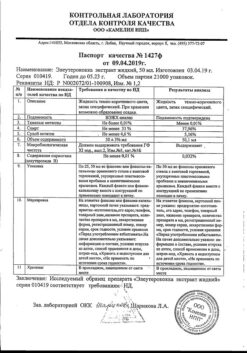No products in the cart.
Calcium gluconate, tablets 500 mg 20 pcs
€1.16 €1.05
Description
Calcium gluconate tablets have a replenishing effect on calcium deficiency, anti-inflammatory, anti-allergic, hemostatic action. It participates in the transmission of nerve impulses, the contraction of skeletal muscles and heart muscle, the formation of bone tissue, blood clotting.
Indications
Indications
Hypoparathyroidism (latent tetany, osteoporosis), vitamin D metabolism disorders: rickets (spasmophilia, osteomalacia), hyperphosphatemia in patients with chronic renal failure.
Increased need for calcium (pregnancy, breastfeeding, period of increased body growth), insufficient calcium content in food, impaired calcium metabolism (in the postmenopausal period).
Enhanced calcium excretion (prolonged bed rest, chronic diarrhea, secondary hypocalcemia due to long-term use of diuretics, antiepileptic drugs and glucocorticosteroids).
Poisoning with magnesium salts, oxalic and fluoric acids and their soluble salts (when interacting with calcium gluconate, insoluble and non-toxic calcium oxalate and calcium fluoride are formed).
Hyperkalemic form of paroxysmal myoplegia.
Pharmacological effect
Pharmacological effect
Calcium gluconate tablets have a replenishing calcium deficiency, anti-inflammatory, antiallergic, hemostatic effect. Participates in the transmission of nerve impulses, contraction of skeletal muscles and cardiac muscle, formation of bone tissue, and blood clotting.
Special instructions
Special instructions
To reduce the risk of developing nephrolithiasis, drinking plenty of fluids is recommended.
Use in patients with impaired renal function: patients with slight hypercalciuria, decreased glomerular filtration or a history of nephrolithiasis should be prescribed with caution and under the control of Ca 2+ concentration in the urine.
Active ingredient
Active ingredient
Calcium gluconate
Composition
Composition
1 tablet contains calcium gluconate 500 mg.
Contraindications
Contraindications
Hypersensitivity, hypercalcemia (calcium ion concentration should not exceed 12 mg% = 6 mEq/l), severe hypercalciuria, nephrourolithiasis (calcium), sarcoidosis, severe renal failure, concomitant use of cardiac glycosides (risk of arrhythmias), children under 3 years of age.
With caution. Dehydration, diarrhea, malabsorption syndrome, moderate chronic renal and/or cardiovascular failure, hypercoagulation.
In patients with mild hypercalciuria, minor renal impairment, or a history of urolithiasis, the drug should be prescribed with caution and the level of urinary calcium excretion should be regularly monitored.
If you have one of the listed diseases, be sure to consult your doctor before taking the drug.
Side Effects
Side Effects
Nausea, vomiting, diarrhea, bradycardia.
Interaction
Interaction
Pharmaceutically incompatible with ethanol, carbonates, salicylates, sulfates (forms insoluble or sparingly soluble Ca 2+ salts). Forms insoluble complexes with tetracycline antibiotics (reduces the antibacterial effect). When used simultaneously with quinidine, intraventricular conduction may slow down and the toxicity of quinidine may increase. Slows down the absorption of tetracyclines, digoxin, and oral iron preparations (the interval between doses should be at least 2 hours). When combined with thiazide diuretics, it can increase hypercalcemia, reduce the effect of calcitonin in hypercalcemia, and reduce the bioavailability of phenytoin.
Overdose
Overdose
Symptoms: development of hypercalcemia.
Treatment: calcitonin, intravenously at the rate of 5-10 IU/kg/day (the drug is diluted in 500 ml of 0.9% sodium chloride solution, administered dropwise over 6 hours).
Storage conditions
Storage conditions
At a temperature not higher than 25˚С. Keep out of the reach of children.
Shelf life
Shelf life
5 years. Do not use after the expiration date stated on the package.
Manufacturer
Manufacturer
Pharmstandard-Leksredstva, Russia
Additional information
| Shelf life | 5 years. Do not use after the expiration date printed on the package. |
|---|---|
| Conditions of storage | At a temperature not exceeding 25 ˚C. Keep out of reach of children. |
| Manufacturer | Pharmstandard-Leksredstva, Russia |
| Medication form | pills |
| Brand | Pharmstandard-Leksredstva |
Other forms…
Related products
Buy Calcium gluconate, tablets 500 mg 20 pcs with delivery to USA, UK, Europe and over 120 other countries.

